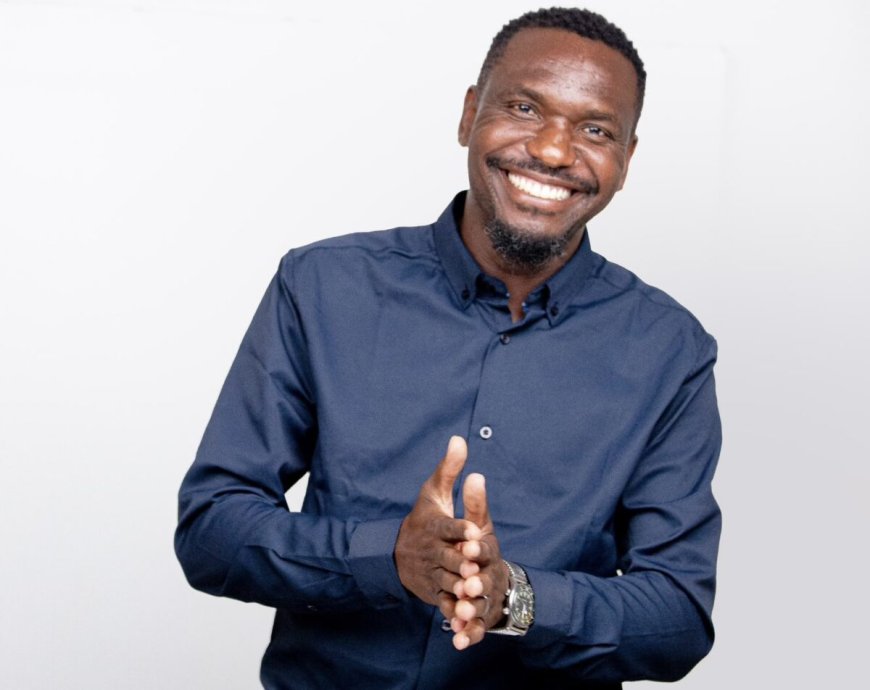High Court Grants Bail to Journalist Blessed Mhlanga After Two-Month Detention
Zimbabwean journalist Blessed Mhlanga has been granted bail by the High Court after spending two months in pre-trial detention over charges of inciting violence. The ruling ends a contentious legal battle that drew international criticism.

High Court Grants Bail to Journalist Blessed Mhlanga After Two-Month Detention
HARARE – After a protracted legal battle that has captured national and international attention, Zimbabwean journalist Blessed Mhlanga has been released from pre-trial detention following a High Court decision on Tuesday, marking the end of a two-month incarceration that rights groups described as unjust and politically motivated.
Mhlanga, a reporter with HStv, had been in custody since February 24 after being charged with inciting public violence. The charge stemmed from his alleged role in broadcasting a video statement by war veteran Blessed Geza, who publicly called for the resignation of President Emmerson Mnangagwa. The video, published by HStv, triggered both government backlash and wide public interest.
A Hard-Won Bail Ruling
On May 6, Justice Gibson Mandaza presided over the latest bail application filed on Mhlanga's behalf. In his ruling, the judge dismissed the prosecution’s argument that Mhlanga posed a flight risk and emphasized that such concerns could be managed through strict bail conditions.
“After hearing submissions by both counsel, this court is of the view that the appellant is entitled to bail,” Justice Mandaza said, ordering Mhlanga's release on US$500 bail—more than double the amount proposed by his legal team.
In addition to the financial bond, Mhlanga was ordered to surrender his passport, report weekly to the CID Law and Order Division, avoid interfering with witnesses, and continue residing at his current address. These conditions are set to remain in place until the conclusion of his trial.
A Prolonged Detention Amid Legal Setbacks
Mhlanga's path to freedom was anything but straightforward. He was twice denied bail—first by a magistrate and again upon his initial appeal to the High Court. His continued detention drew criticism from press freedom advocates, who questioned the judicial system’s impartiality in politically sensitive cases.
Legal experts and human rights defenders described the earlier denials as a troubling sign of declining media rights in Zimbabwe. Many viewed the charges against Mhlanga and HStv as a coordinated attempt to silence independent media and intimidate journalists who cover controversial political subjects.
International Reactions and Advocacy
The arrest of Blessed Mhlanga prompted widespread condemnation from international human rights organizations, media watchdogs, and foreign diplomats. His detention was seen as part of a broader pattern of repression under President Mnangagwa’s administration.
In the United Kingdom, activists had planned to confront Zimbabwe’s First Lady, Auxillia Mnangagwa, during her upcoming visit to a conference in June. The protest aimed to draw attention to Mhlanga’s imprisonment and the ongoing threats to press freedom in Zimbabwe.
Social media campaigns and open letters from journalist unions amplified calls for Mhlanga’s release, branding his arrest as a political maneuver designed to criminalize dissent.
Charges Against HStv and Press Under Pressure
HStv, the media house where Mhlanga works, also faces charges in connection to the video. Legal analysts say the case raises serious concerns about the government’s readiness to prosecute media entities under vague or overly broad laws. These types of prosecutions often have a chilling effect on freedom of expression and journalistic work.
The video at the center of the controversy featured Blessed Geza, a former war veteran known for his outspoken criticism of the Mnangagwa regime. In it, he called for the president’s immediate resignation, a statement the government claims was incitement to violence. Critics argue that airing such content falls squarely within the realm of public interest journalism and does not meet the legal threshold for incitement.
A Pivotal Moment for Zimbabwe's Judiciary
The High Court’s decision to grant bail, though a relief to Mhlanga and his supporters, has done little to quell concerns about judicial independence in politically sensitive cases. The fact that it took over two months—and repeated applications—to secure a basic right such as bail has raised questions about whether Zimbabwe’s courts are being influenced by political considerations.
For journalists and civil society actors, the ruling is both a victory and a reminder of the fragile state of media freedoms in the country. Many believe that Mhlanga’s case could set a precedent for how other journalists are treated under Mnangagwa’s administration.
What's Next?
While Mhlanga is now out on bail, his legal battle is far from over. The trial will proceed in the coming months, and the charges against both him and HStv remain in place. The outcome of the trial will be closely watched, not just in Zimbabwe but by observers around the world.
For now, Mhlanga has returned home, where he plans to prepare his defense and continue advocating for press freedom. Supporters hope his case serves as a wake-up call and catalyst for reforms that safeguard journalistic work from undue political interference.
What's Your Reaction?
 Like
0
Like
0
 Dislike
0
Dislike
0
 Love
0
Love
0
 Funny
0
Funny
0
 Angry
0
Angry
0
 Sad
0
Sad
0
 Wow
0
Wow
0
























